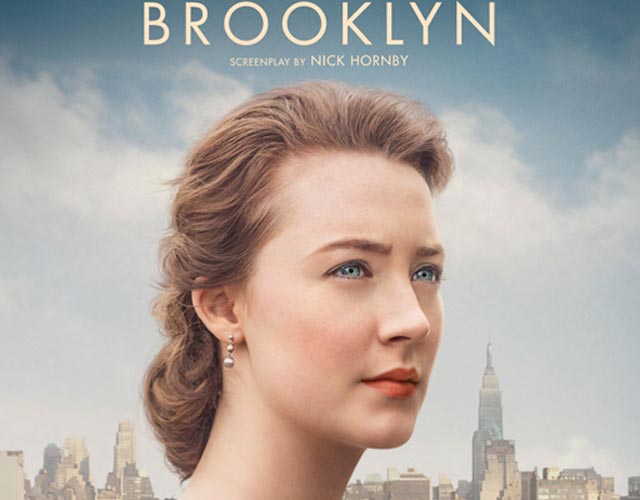Oscars 2016 Best Picture Review: ‘Brooklyn’ Is A Gentle And Nostalgic Tale Of Love

4.5/5
Brooklyn portrays the enchanting story of a 1950s Irish immigrant Eilis Lacey (Saoirse Ronan), who falls in love with a young man from Brooklyn and finds herself at crossroads in life, having to choose between two different worlds. The script, adapted from Colm Tóibín‘s novel, is the creation of writer Nick Hornby, who is careful to avoid and even challenge the stereotypes associated with an Irish immigrant of that time in question. Brooklyn remains open-minded about the past it wants to present. It manages to make it as unpredictable and unfamiliar as the present time, even though the viewer might be capable of filling in the historical blanks.
‘Brooklyn’ Movie Review
Eilis Lacey, played by stunningly talented Ronan, sets out on a journey to New York somewhat reluctantly, urged by her family who simply want the best for her. Her first months after settling in Brooklyn are full of homesickness and even a sense of purposelessness. The film takes its time to tell the story. It unfolds rather slow at first, but this allows the viewers to gain a deep understanding of the character and her internal struggles, however vaguely they might be portrayed. It is only when Eilis meets and falls in love with Tony Fiorello (Emory Cohen), an Italian-American plumber living with his family in Brooklyn, that the pace quickens and the stakes get tangibly higher. Their developing relationship is put to the test when a family emergency forces Eilis has to return home and she finds a new admirer (Domhnall Gleeson).
The love story narrative is all too familiar, but this is where the beauty of the film lies. It does not try to shock or provoke but simply to tell something about the past without imposing judgment. It talks about ordinary life and a universally recognizable endeavor to discover one’s sense of identity and find one’s footing in the world. The heroine’s vacillation between her own past and present and the two worlds she inhabits is dramatized exquisitely. Ronan subtly conveys the exact moment of maturation and profound life change with every aspect of her performance.
The ordinary string of events that precipitate the conflict in the film is told beautifully through the lens of John Crowley. The sharp visuals romanticize the past without pretending to be all-embracing in their scale. Brooklyn never loses sight of the personal, even though its story is one that speaks to many with its genuineness.
The relatively low budget needed to create this movie speaks to the unpretentiousness that makes it so successful. With Colm Tóibín’s touching story is the at its foundation, this is one of those films that you watch for the narrative and unadulterated visual storytelling, a moving and meditative drama that is thrilling in its simplicity.
RELATED ARTICLES
Get the most-revealing celebrity conversations with the uInterview podcast!





Leave a comment